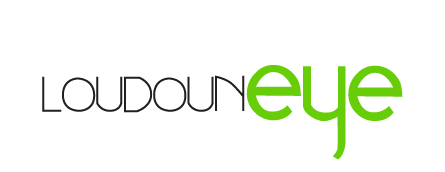
As a parent, you might think your child is just being stubborn by sitting too close to the TV—until the classroom complaints start rolling in. It is more common than you think, especially now that children spend more time on screens than ever. At L Loudoun Eye Associates in Ashburn, we have seen just how rapidly myopia is increasing among children and how early intervention can make a real difference.
According to the NIH, childhood myopia has approximately doubled since 2010. That’s concerning—not just because it means more children need glasses, but because unchecked myopia can increase the risk of serious eye diseases later in life. While glasses correct blurry vision, they don’t stop myopia from getting worse. That’s where myopia management comes in.
Why Early Myopia Management for Kids is Critical
When we talk about myopia, we are not just talking about needing glasses to see the board. Myopia happens when the eye grows longer than it should, which causes far-away objects to look blurry. This eye growth doesn’t stop with new glasses or contact lenses—it needs to be actively managed to slow myopia progression in children.
Children with progressive myopia face a higher risk of developing conditions like glaucoma, retinal detachment, macular degeneration, and even vision loss later in life. The earlier we begin managing it, the better the outcome for your child’s long-term vision and eye health.
Signs of Nearsightedness in Kids Every Parent Should Know
Not every child can tell you when something is wrong with their vision, and many don’t even realize it themselves. That’s why it’s important to know what behaviors or complaints could point to early signs of myopia in children. Catching these clues early can help you take the proper steps toward slowing your child’s eye growth and protecting their long-term vision.
Frequent Squinting or Eye Rubbing
Children who squint often or rub their eyes after reading or screen time might be trying to compensate for blurry distance vision. These habits are worth mentioning at your next eye exam.
Holding Screens or Books Too Close
If your child always holds a book just inches from their face or presses their nose to a tablet, it could compromise their distance vision.
Complaints of Blurry Vision
Blurred vision isn’t always something children understand how to explain. They may describe it as "not seeing right" or "letters jumping." Pay attention to those cues.
Sitting Too Close to the TV or Struggling in Class
Does your child always pick the closest seat to the screen, or does your child seem to have trouble seeing the whiteboard in school? Teachers might also note that your child is squinting or falling behind in tasks that involve seeing from afar.
Frequent Headaches or Eye Fatigue
Persistent headaches or eye strain after school or screen use could indicate that your child’s eyes work harder than they should to focus on distant objects.
Family History of Myopia
Myopia tends to run in families. If one or both parents are nearsighted, there’s a higher chance their child will develop it too.
How to Respond if You Suspect Your Child Has Myopia
Noticing a few of these signs doesn’t always mean something is wrong—but it’s worth checking out. Here’s what you can do:
- Book a comprehensive eye exam focusing on checking your child's level of myopia.
- Bring a list of your child’s symptoms or behaviors you have observed.
- Ask about myopia management options instead of just glasses or regular contacts.
- Start a treatment plan early if your child is a candidate—earlier is better.
Best Myopia Control Treatments for Kids at Loudoun Eye Associates
At Loudoun Eye Associates, we offer several proven ways to help slow the progression of myopia, especially in children aged 6 to 18 when eye growth tends to accelerate most. These treatment options are particularly important for those with higher levels of myopia, as they face an increased risk of developing severe eye conditions later in life. Here is a quick look at the options we offer and how they work:
Orthokeratology
Ortho-k is a custom gas-permeable contact lenses worn overnight to reshape the cornea. These lenses provide clear vision during the day without glasses or contacts; slows myopia.
Atropine Eye Drops
These l ow-dose drops applied daily to reduce eye growth. They are easy-to-use, which makes them ideal for children who aren’t ready for contact lenses.
Multifocal Contact Lenses
Multifocal contact lenses are soft contact lenses worn during the day that provide different focusing zones. They are comfortable and effective in slowing eye growth while correcting vision.
Our doctors follow each child closely, adjusting the treatment to ensure it works. Regular check-ins help us keep your child’s myopia and eye growth on track and give them the best chance for long-term visual health.
Schedule a Myopia Evaluation in Ashburn to Protect Your Child’s Vision
You know your child best, and if something about their vision feels off, we are here to help. Myopia doesn’t have to take over your child’s future.
At Loudoun Eye Associates, we use proven eye care treatments that do more than just fix blurry vision—they help reduce your child’s risk of serious eye issues later in life.
If you have noticed signs of myopia or just want peace of mind, schedule an eye care consultation with one of our pediatric optometrists in Ashburn. Let’s allow your child to see clearly now—and for years to come.

